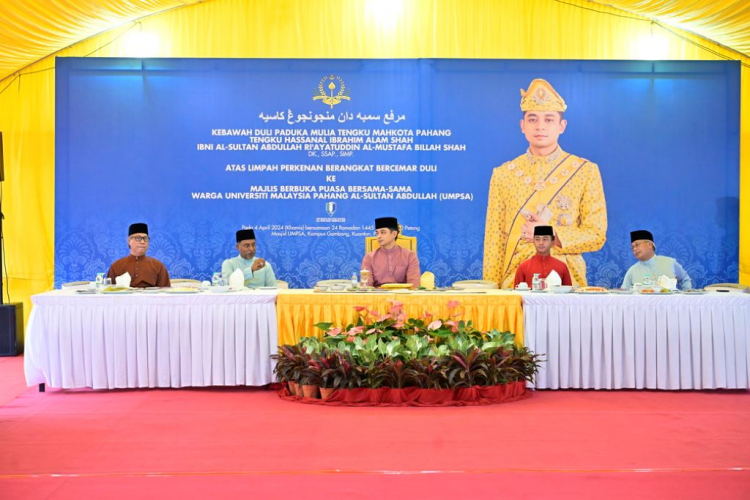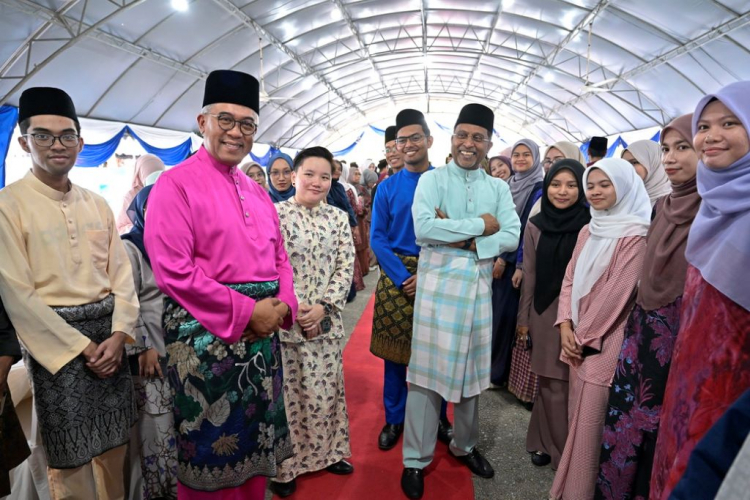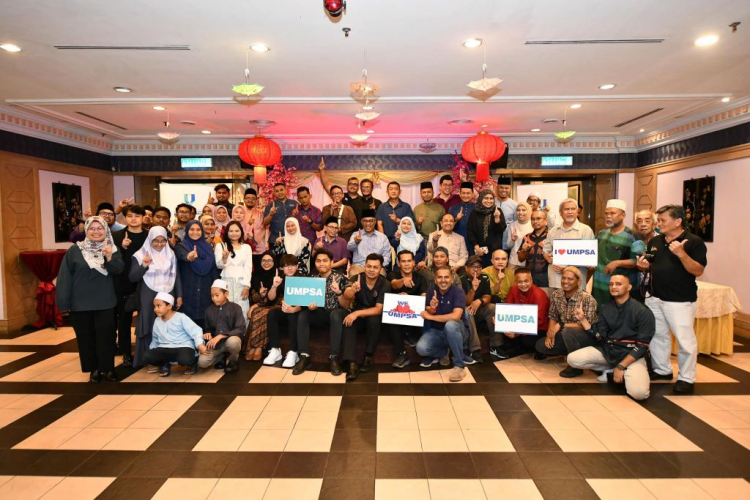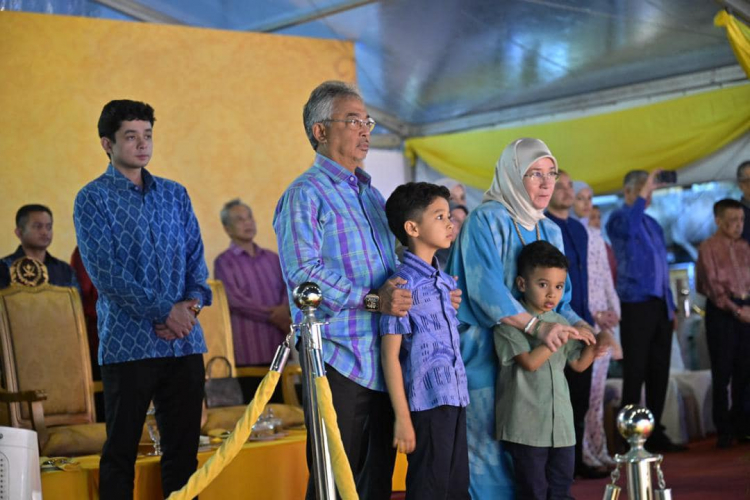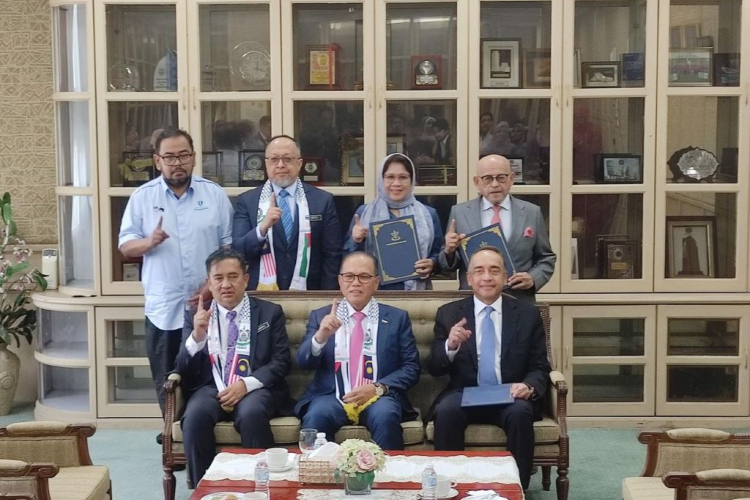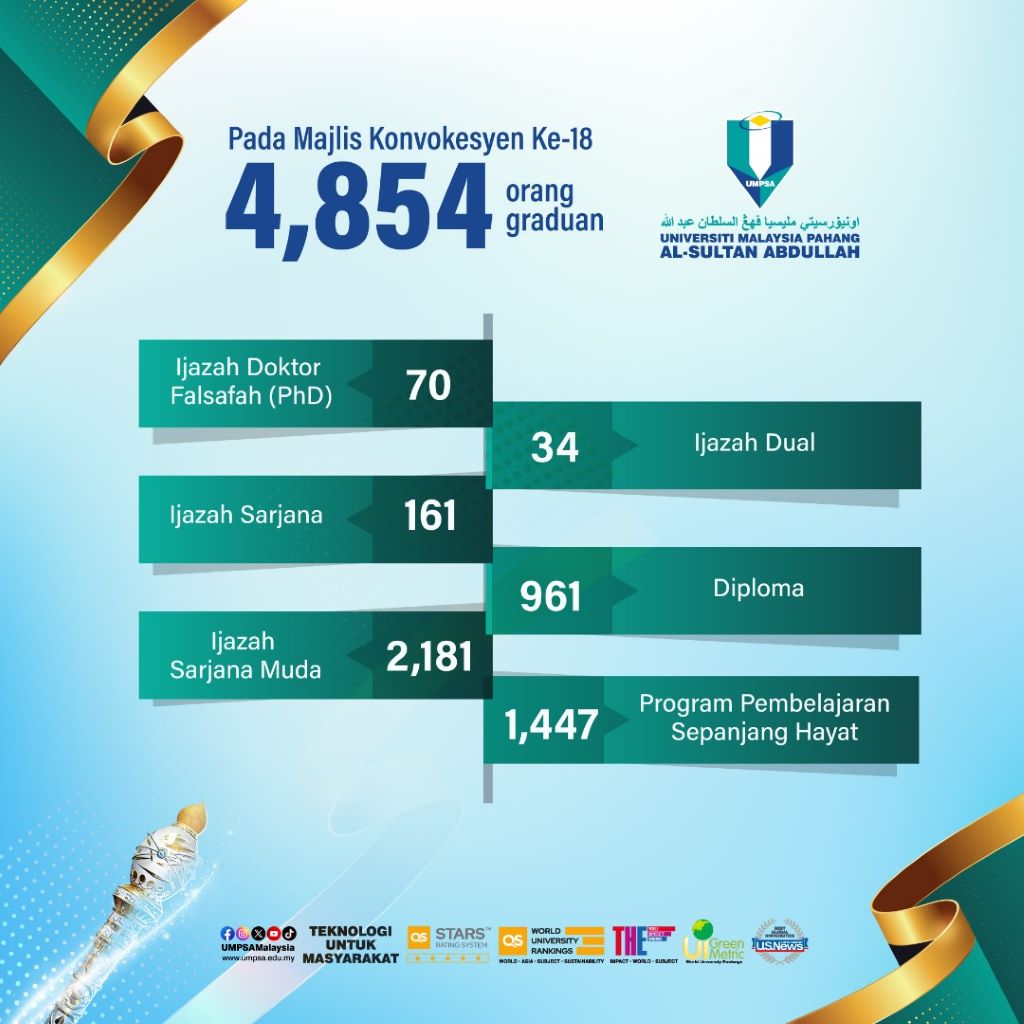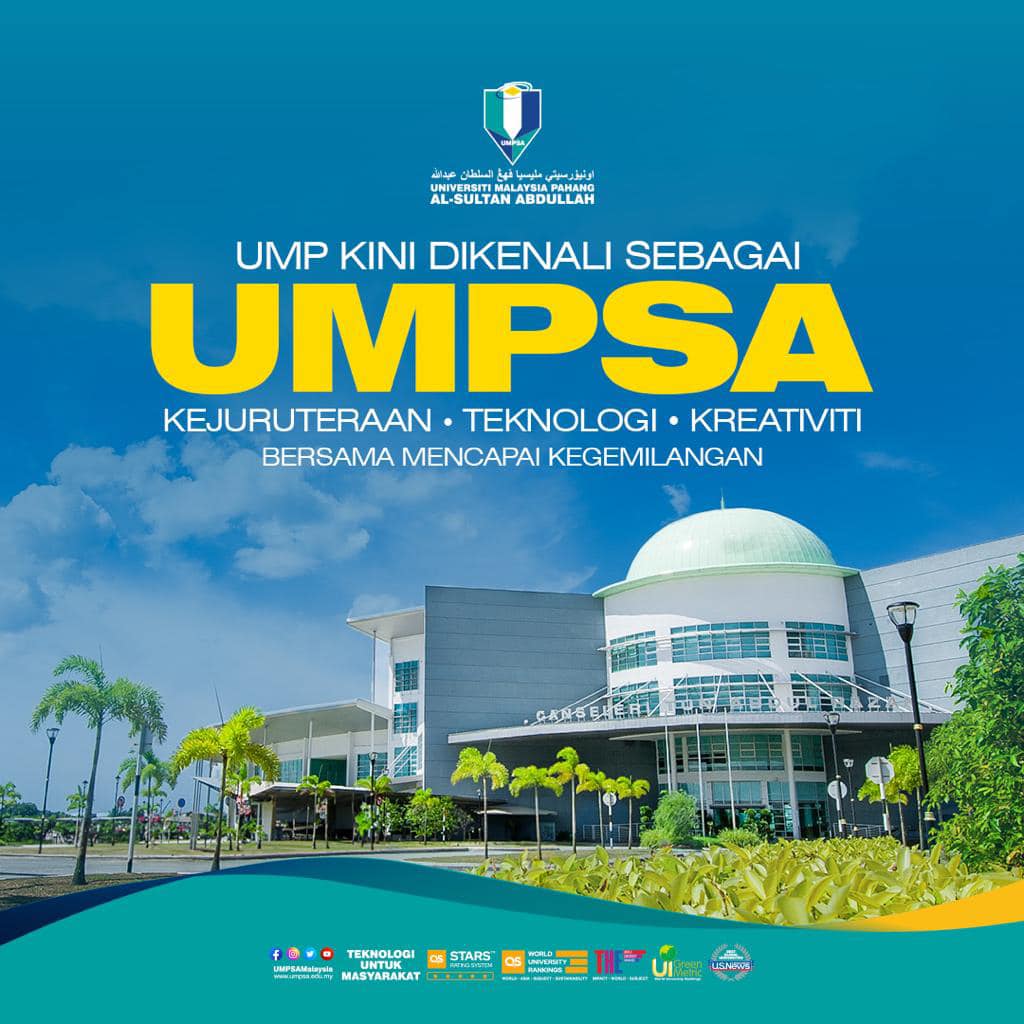Leadership innovation in new norms crisis management era
PEKAN, July 8, 2021 - More than a year of dealing with the COVID-19 pandemic has seen a total change in aspects of our lives today.
Everyone has a big role in assisting the government in flattening the COVID-19 curve by adhering to standard operating procedures (SOPs).
At the same time, every citizen or civil servant has to change the working landscape by adapting working from home (WFH) as a new norm for the continuity of service throughout the Movement Control Order (MCO) period.
New national security challenges involving health threats demand the involvement of government agencies and ministries to act in an integrated manner through the mobilisation of forces with on-site security and safety personnel.
It certainly demands leadership innovation towards new norms crisis management era.
According to the Deputy Director-General (Post-Disaster Management Division), National Disaster Management Agency (NADMA), Mohamad Azhan Md Amir, apart from the National Security Council (MKN), NADMA also acts as a coordinator in managing aid properly and coordinating operational actions and logistics management to meet the needs of the frontliners and the public.
“NADMA shoulders a great responsibility to manage aids together with other agencies in providing well-being to the community.
“As leaders, we need to act quickly in making the right decisions in dealing with various situations.
“NADMA also manages the COVID-19 Fund to help those who are positive or in close contact with patients.
“Various challenges are faced by this team in managing disasters, and as the frontliners, we are always ready,” he said, discussing the topic ‘Inovasi Kepimpinan Dalam Pengurusan Krisis Era Kebiasaan Baharu’ in the Higher Education Leadership Webinar Series (Series 2).
The online programme was organised by Universiti Malaysia Pahang (UMP) in collaboration with the Higher Education Leadership Academy (AKEPT) and the Malaysian Council of Public Universities Administrators Association (MASTI) recently.
The programme also featured the President of the Academy of Professors Malaysia (APM), Professor Dato’ Sri Ts. Dr. Daing Nasir Ibrahim and the President of MASTI, Raja Shah Erman Raja Arifin.
Professor Dato’ Sri Ts. Dr. Daing Nasir said APM serves as a reference to lead data research and a think tank by providing policy input or advisory on policy implementation. In addition, APM is always ready to unite scholars to contribute ideas and views in various fields.
“We need to be more efficient in facing strategic changes so as not to affect productivity.
“Therefore, leaders must innovate in management and need to always be ready and add value to achieve the desired level in line with the era of IR 4.0 and digitalisation,” he said.
Raja Shah Erman Raja Arifin said the wisdom behind the COVID-19 pandemic can be seen within the administration, having developed various human capital management systems on campus.
“Surely we did not expect this situation to happen so fast, but after more than a year we have been through it, I can see that all universities have accepted this new norm well.
“We always support all strategies implemented by the government in national recovery initiatives.
“As a public university (UA), we are also ready to help either to be a one-stop centre or a training centre for the local community to accelerate the National Recovery Plan (NRP) with the existing resources at the university,” he said.
The programme was moderated by the Officer of the Institute of Civilisation and Strategic Studies (ITKAS), Mohd Zaki Ahmad.
A total of 350 people attended the programme through Google Meet and PPTI UMP Facebook page.
Also present were the UMP Vice-Chancellor, Professor Ir. Dr. Wan Azhar bin Wan Yusoff and the Acting Director of AKEPT, Associate Professor Dr. Yazrina Yahya.
The event was officiated by the Deputy Minister of Higher Education Malaysia, Yang Berhormat Dato’ Mansor Othman.
In his opening remarks, he expressed his appreciation to all involved and hoped that this collaboration could elevate and disseminate knowledge, especially to the leadership in HEIs in addressing and managing risk.
He added that leading the Ministry of Higher Education (MoHE) today is a big challenge for all MoHE staff, especially in making the right decisions to ensure smooth action.
“To ensure the smooth operation of COVID-19 prevention, MoHE is no exception to contribute energy and physical facilities in assisting NRP as a phased exit strategy from the COVID-19 pandemic crisis announced recently.
“Besides that, KPT is actively assisting the government in the National COVID-19 Immunisation Programme through establishing the Institution of Higher Learning Vaccination Centre (IPT PPV), which so far involves 18 IPT PPVs,” he said.
By: Nor Salwana Mohd Idris, Corporate Communications Unit, The Office of The Vice-Chancellor
Translation by: Dr. Rozaimi Abu Samah, Engineering College/Faculty of Chemical and Process Engineering Technology


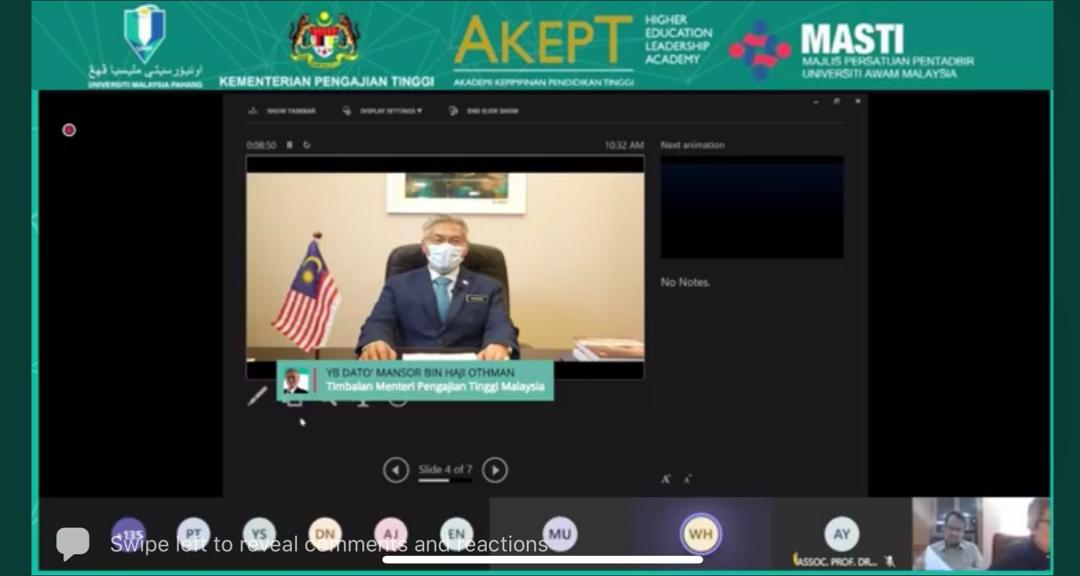
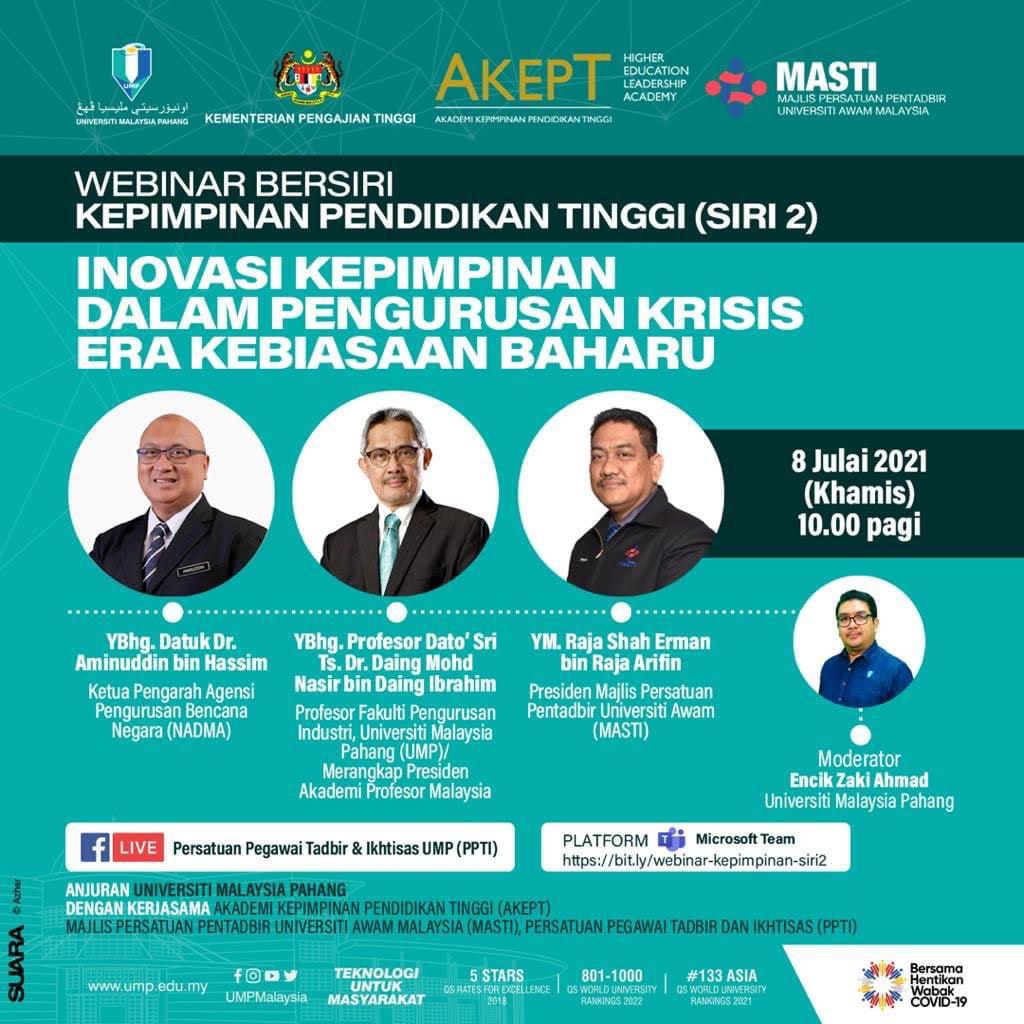
 Reports by:
Reports by: 